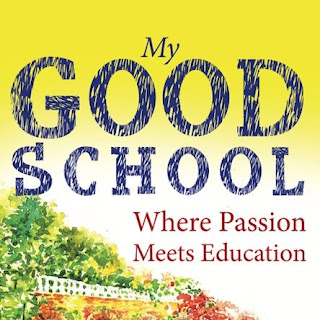Play on YouTubeMy Good School, 16th June 2025Karthik's Passion and Mental Wellness
The meeting began with introductions and a discussion about last week's activities. Karthik, a guest speaker, was introduced and shared his background, including his work in advertising, film, and television, as well as his transition to teaching and his mental wellness initiative, Driveway Devi. The group watched a TED Talk by Karthik from 2016, which discussed finding one's passion and following it. The session concluded with plans to engage in a Q&A session after the talk.
Embracing Uniqueness and True Passions
Kartik shared three pivotal moments in his life where he learned to embrace his uniqueness and passions. At boarding school, he initially felt out of place but found his true self through music, winning a competition and gaining the acceptance of his peers. He later realised his mismatch with a business-focused college course and switched to English honours, finding fulfilment in writing. Despite a successful career in media, he ultimately discovered his true calling in teaching and writing, moving back to Jaipur to pursue these passions.
Embracing Passions and Unique Paths
Jugjiv discussed the importance of embracing one's uniqueness and passions to lead a fulfilling life, urging others to acknowledge and take pride in their natural leanings. Kartik shared insights on pursuing passions despite parental concerns, highlighting the changing landscape of careers and the role of technology in democratising talent exposure. He advised seeking unbiased feedback and maintaining realistic expectations about one's goals. Rishona asked questions about the perception of stress among younger generations and how to cope with the fear of change, to which Kartik responded, emphasising the importance of self-awareness and resilience.
Developing Resilience and Discernment
Kartik discussed the importance of developing a thick skin. He shared personal experiences of being judged for his music choices, emphasising the need to be aware of one's tendency to be overbearing when offering support to someone experiencing mental health challenges. He advised tailoring the approach based on the individual's personality. Kartik also explained the difference between judgment and opinion, and highlighted the importance of discerning between normal sadness and depression by considering factors such as duration and intensity of symptoms.
Balancing Work and Smart Work
Kartik discussed the importance of combining hard work and smart thinking in today's world, using examples from his teaching experience. He explained how he initially encouraged students to use the internet for research but later banned devices due to the over-reliance on AI tools like ChatGPT, which he felt was not promoting genuine intellectual effort. Kartik emphasised the need for students to use technology wisely, combining it with their own critical thinking and personal insights. The session concluded with Kartik sharing tips on overcoming stage fright, such as knowing one's material well and taking a moment to centre oneself before speaking.
Animal Learning and Behaviour Insights
Brinda led a reading session on animal upbringing, sharing insights from "The Inner Life of Animals" about how animals, like humans, learn and adapt to their environments. She discussed her experience with a small herd of goats, highlighting how their behaviour improved after they had kids and learned from their mothers. Brinda also explained how insects, mice, and larger mammals, such as wolves and deer, learn survival skills from their elders, challenging the notion that animal behaviour is purely instinctive.
Animal Education vs Human Schooling
The discussion focused on comparing animal education and human schooling, with Brinda explaining that while animals don't attend formal schools, they are trained by their parents through natural instincts and discipline. The class discussed how animals, particularly mammals and birds, prepare their young for independence, with Brinda sharing personal experiences about goat rearing and how mothers gradually wean their offspring. The conversation concluded with Brinda suggesting that the class read Gerald Durrell's books for further insights into animal behaviour, particularly regarding how animals handle the transition of young ones leaving their parents.
Bees and Fawn Life Stories
Brinda discussed the life cycle of bees, focusing on the role of drones and the process of removing them from the hive as winter approaches. She also shared a story about a fawn that was mistakenly taken in by humans, highlighting the different ways mother love can be expressed among mammals and the potential dangers faced by fawns in modern times.
European Wildcat Conservation Discussion
Brinda discussed the European wildcat, highlighting its conservation success and distinguishing features, noting that positive identification requires genetic testing. She explained that while wildcats and domestic cats can interbreed, wildcats are generally more aggressive and unsuitable for domestication, leading to a discussion about the challenges of keeping wild animals as pets. The session concluded with Manisha requesting participants to share reflections about their pets and maintain respect for speakers in future sessions.
Next steps
- Students: Practice staying muted during online sessions and raising hands before speaking
- Students: Share pictures and stories about their pets and observations of pet behaviour before the next Sunday session
- Manisha: Publish shared pet pictures and stories from students
- Students: Submit reflections on the session through writing, doodling, or other creative ways
- Brinda: Prepare Gerald Durrell's "My Family and Other Animals" for future reading sessions








